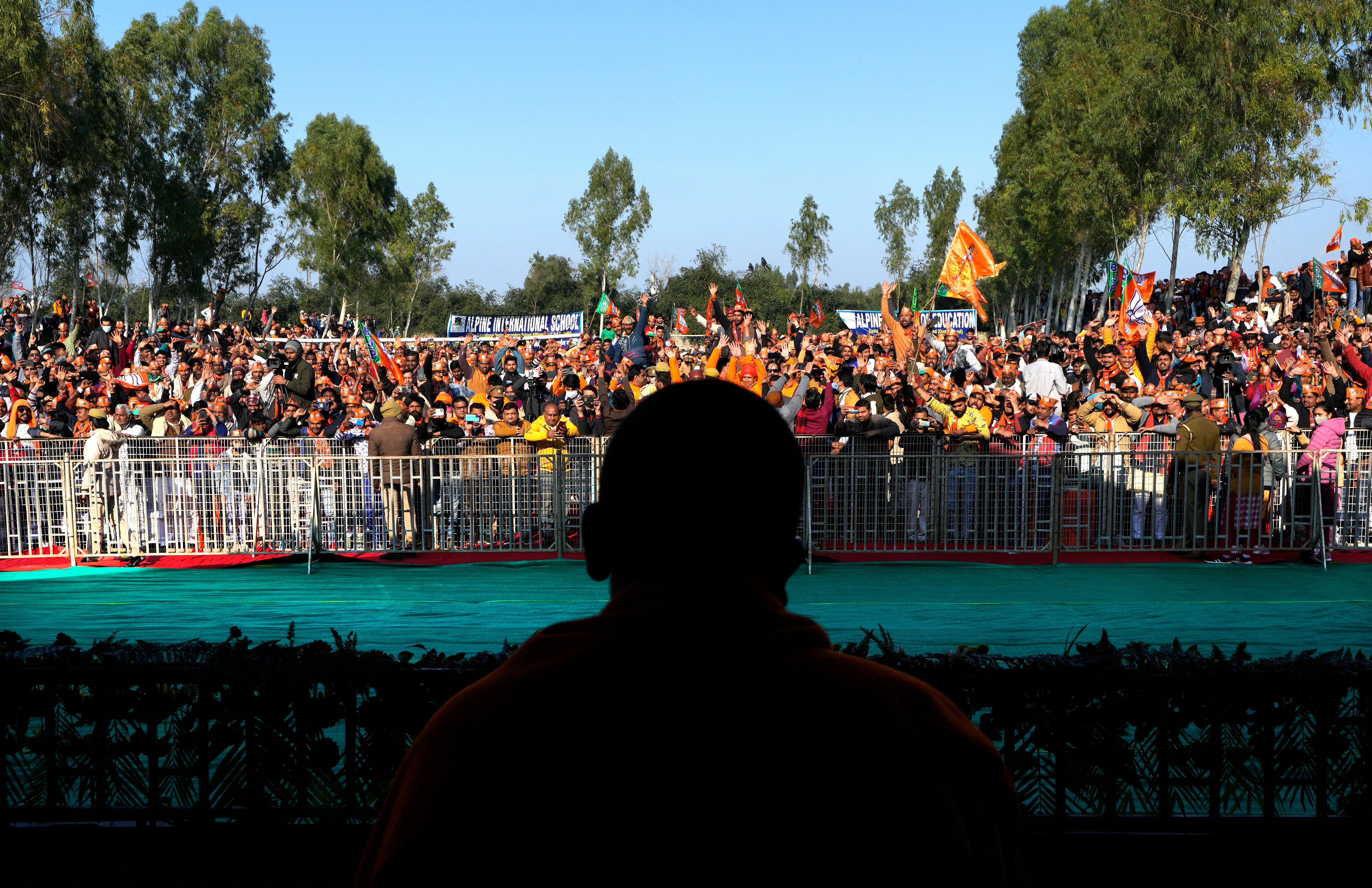AP PHOTOS: Despite curbs, campaigning continues in India

The order in January was clear and driven most by India’s past experience: Political rallies — a staple of Indian elections — were to be halted immediately.
Enormous gatherings during state elections last year contributed to a devastating coronavirus surge that left the country's feeble health system battered. And another surge driven by the omicron variant had already arrived.
Suddenly, the colorful and often raucous rallies were curtailed. Life-size cardboard cutouts of politicians faced deserted rally venues. Rows and rows of chairs had no one sitting in them. And the loudspeakers which were to relay the speeches of politicians went silent.
So what did politicians vying for millions of votes in a series of state elections that start on Thursday do? They knocked on people’s doors.
Often, they were maskless as they distributed election materials to voters. Some politicians rode atop packed trucks and cars that made their way through winding streets. Others walked on foot, smiling for the cameras with hands folded in greeting, wading through jostling crowds.
Social distancing didn't exist. Politicians were followed by thousands of supporters who flouted health protocols, rendering the ban on rallies almost meaningless.
The coronavirus is still spreading rapidly through India, prompting anxiety as the elections attract millions to polling booths. Weekslong balloting will take place in Uttar Pradesh the largest state with a population of more than 200 million, as in states such as Punjab, Uttarakhand, Goa and Manipur.
The polls end March 7 and results are to be declared on March 10.
To tackle the spread of the virus, most political parties have switched to virtual campaigning.
On a recent afternoon, Pankaj Singh, a politician from the governing Bharatiya Janta Party in Uttar Pradesh, sat with his supporters at a community park in Noida a city bordering New Delhi and watched a speech by Prime Minister Narendra Modi broadcast live on a large television set.
Singh and his supporters were upbeat about the crucial state polls that will set the tone for 2024 national elections. But they rued the lack of crowds.
“Before (the pandemic) the rallies used to be large. There used to be a different type of excitement," Singh said.
Bookmark popover
Removed from bookmarks